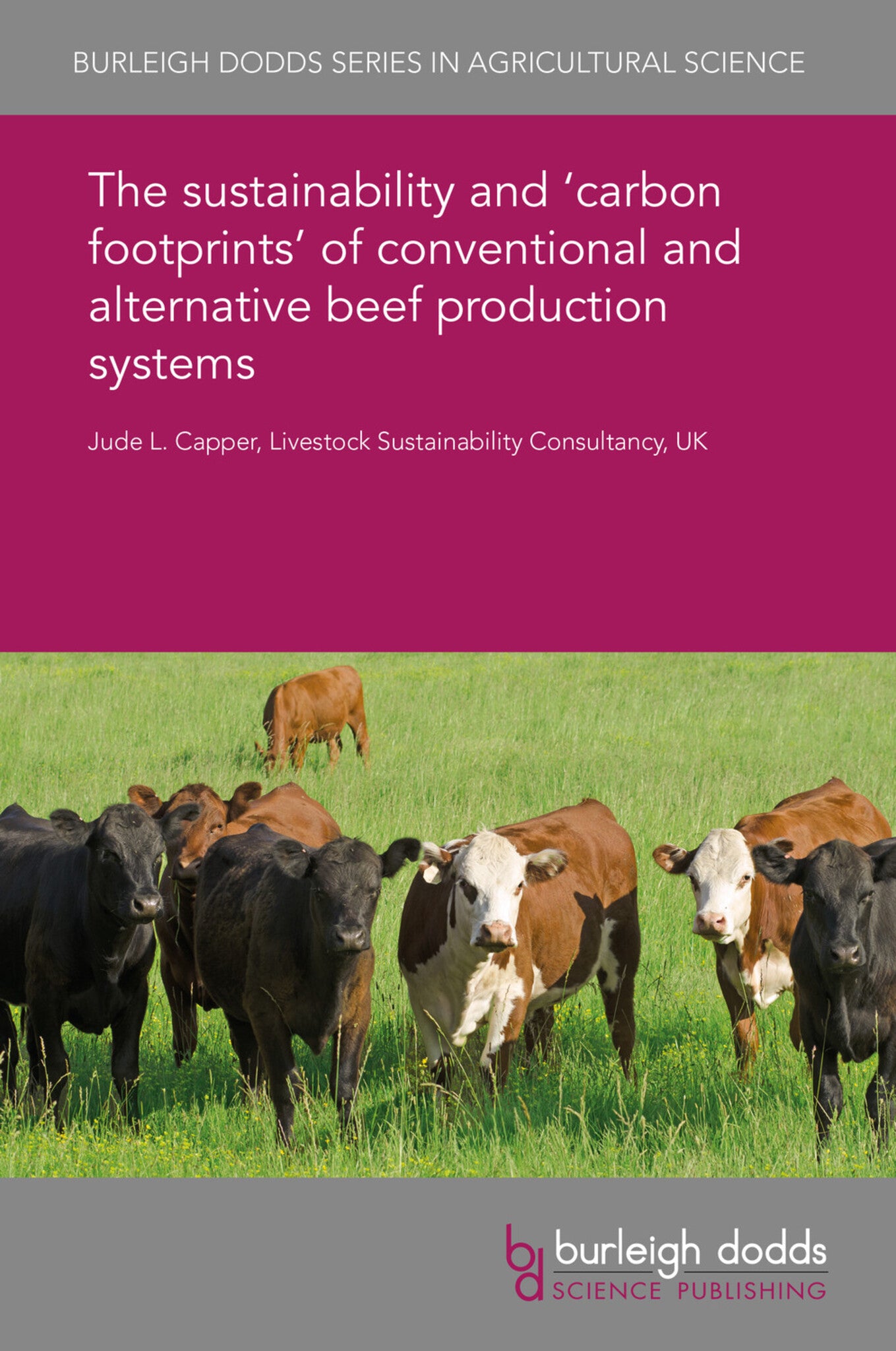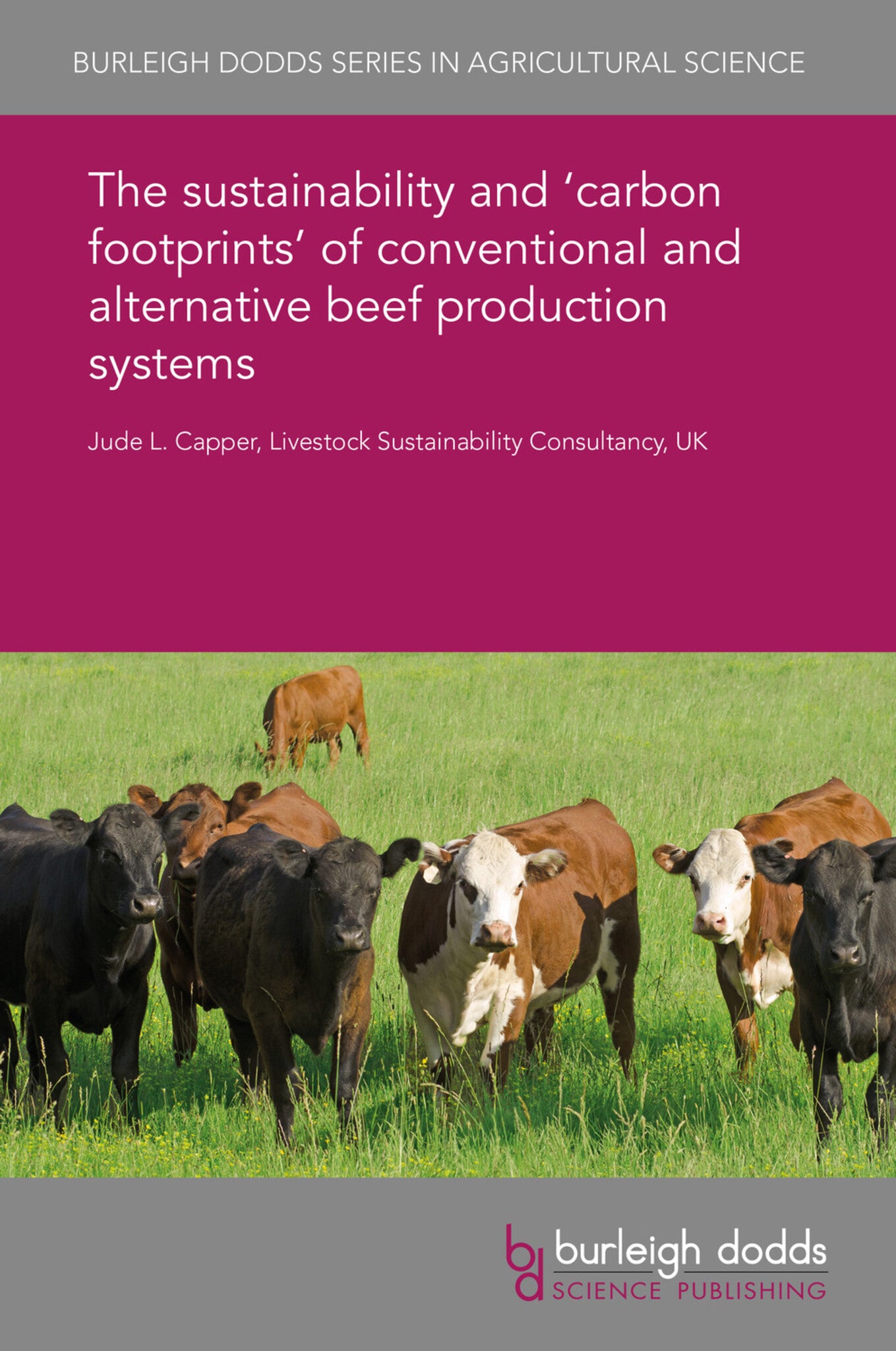We're sorry. An error has occurred
Please cancel or retry.
The sustainability and ‘carbon footprints’ of conventional and alternative beef production systems
Regular price
£25.00
Sale price
£25.00
Regular price
£0.00
Unit price
/
per
Sale
Sold out
Re-stocking soon
The beef industry faces a significant challenge in producing sufficient food to supply the requirements of the growing population, while maintaining a culture of continuous improvement and reducing...
Read More

Some error occured while loading the Quick View. Please close the Quick View and try reloading the page.
Couldn't load pickup availability
- Format:
-
31 March 2017

The beef industry faces a significant challenge in producing sufficient food to supply the requirements of the growing population, while maintaining a culture of continuous improvement and reducing environmental impacts per unit of beef produced. Since the late 1970’s, the US beef industry made significant efficiency gains that improved resource use and reduced greenhouse gas (GHG) emissions, and considerable opportunities exist for making greater gains in future. However, beef producers’ future access to specific management practices or technologies may be constrained by consumer perceptions.

Price: £25.00
Publisher: Burleigh Dodds Science Publishing
Imprint: Burleigh Dodds Science Publishing
Series: Burleigh Dodds Series in Agricultural Science
Publication Date:
31 March 2017
ISBN: 9781838790486
Format: eBook
BISACs:
TECHNOLOGY & ENGINEERING / Agriculture / Sustainable Agriculture, Animal breeding, TECHNOLOGY & ENGINEERING / Agriculture / Animal Husbandry, Sustainable agriculture

1 Introduction 2 Defining sustainability 3 GHG emissions and carbon footprints 4 Trends in beef sustainability 5 Sustainability of alternative (grass-fed, natural, organic) beef production systems 6 Opportunities for improving and maintaining beef sustainability 7 The role of consumers 8 Conclusion 9 Where to look for further information 10 References



